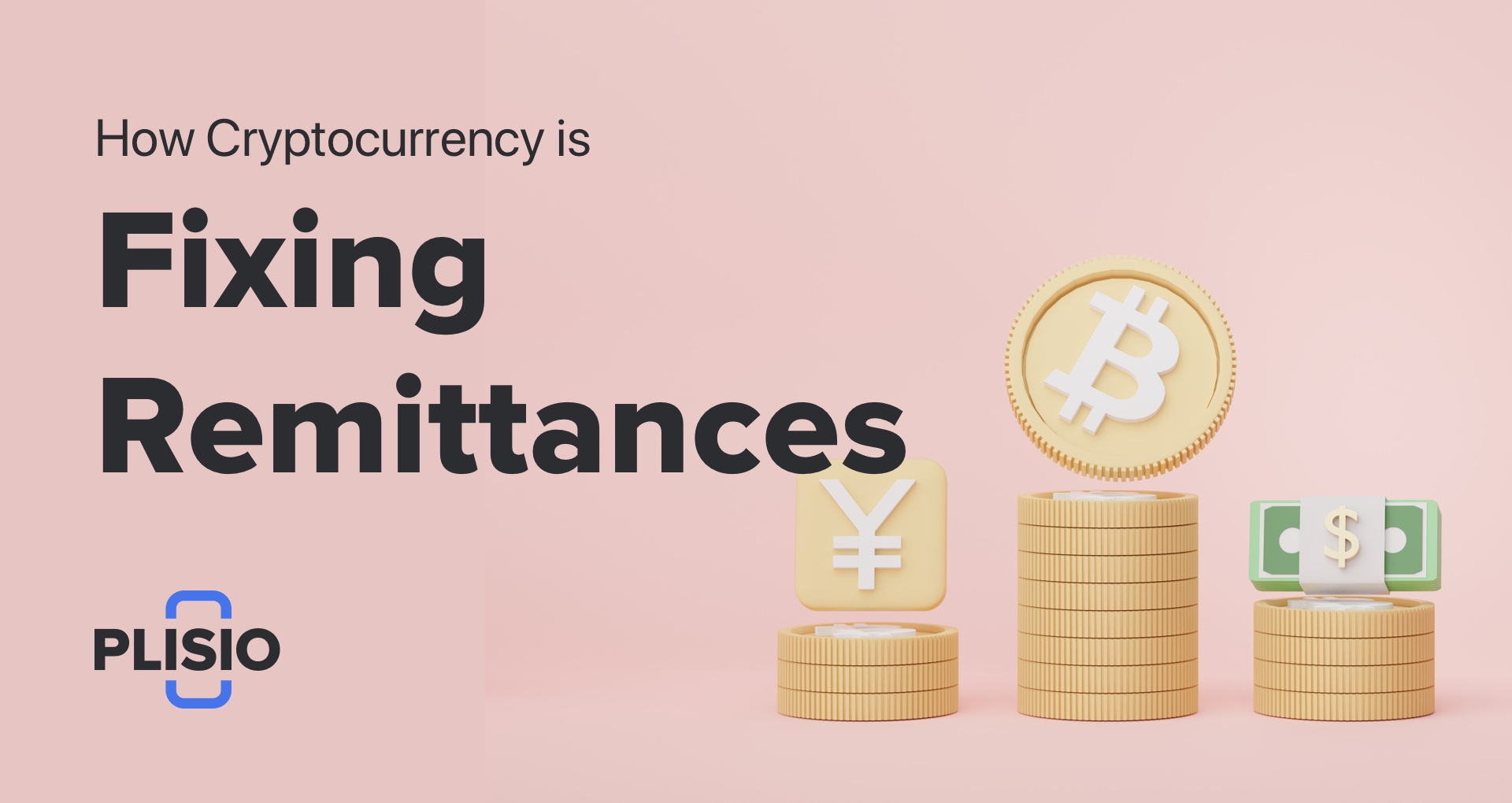How Cryptocurrency is Fixing Remittances

Remittances, as we know it now, have been rather indispensable since the emergence of trade as a basic economy concept. However, the way remittances are implemented is constantly changing. We have witnessed plenty of events in the financial market and payments sphere - the drastic shift from simple bartering to digital means of payment like cryptocurrency or distributed ledger technology. Luckily, more marvelous developments are yet to knock on the door.
Nonetheless, the conventional payment system has been long suffering from its imperfections.The COVID-19 pandemic has played its part very well - fees that keep getting higher, protracted processing time and good old inflation preventing us from making payments in the first place. We could say that the switch towards non-contact and digital remittances has been speeded up for the last two years as cash substitutes like cryptocurrency and stablecoins are being more and more mainstreamed.
Why Is Cryptocurrency So Remarkable?
As some economists and trade policy professors would claim it, cryptocurrency is making a payment system more effective. Cryptocurrencies like Bitcoin or Ethereum work on the principle of decentralization, which means that their value arises from supply and demand.
In 2009, Bitcoin started up as a P2P financial system. Its finite supply and inherent scarcity is due to the greatly designed ecosystem that makes it so precious for its holders.
The multifunctionality of cryptocurrency, like being used as payment or investment method, is also quite underrated. Crypto holders and traders have a variety of options to manage their assets nowadays, starting with accepting crypto payments on their marketplaces or just holding it in the digital wallet with a staking option. To get through with that, the users might use the help of some outstanding platforms like Plisio, CoinPayments or CoinGate.
How Blockchain Makes Cross-Border Payments Cheaper and Faster
The conventional way of sending payments abroad always implies a high transaction price. It happens for an obvious reason - there are intermediaries involved. The total amount of funds sent is being taken away by banks, people or companies thus adding to the fee cost. The World Bank data states a fee average between 5-8% of the transaction overall amount subject to the method used.
One of the main reasons why cryptocurrency makes remittances rather efficient is that it provides for swift and transparent international transactions. This can be exceptionally useful for people with cross-border business activities or for those who send money overseas. First and foremost, we owe this to the technology behind such cryptocurrency like Bitcoin. Blockchain ecosystem and its decentralized nature makes international remittances free of any third-party intermediaries, which in the end accelerates the payment process and cuts down on fees. Blockchain ecosystem is slowly changing the way people send money abroad by making remittances direct - rather than send funds bank to bank, you could send it from wallet to wallet.
Bitcoin In Practice
Endless theories on how blockchain technology might be implemented can only take us so far - we better focus on the real-life case of its application.
The president of El Salvador Nayib Bukele has recently adopted Bitcoin as the second state currency beside the US dollar. The motivation? By making a digital currency a second local currency, Bukele provides for cheaper and faster cross border payments. The 24% increase in El Salvador’s GDP owes it to the international remittances carried out in 2020. The inflow of payments enabled by Bitcoin is boosting El Salvador’s entire economy as we speak. "My dream would be that El Salvador will transit its way from the Third World to the First World. It's probably not going to be done in a couple of years but, you know, probably at least we can set up the path," says Nayib Bukele in his interview with What Bitcoin Did.
The Bright Future Is Nigh
As there are more and more demands arising from the public, the approach to remittances has been constantly advancing. The road to mass adoption might not be as quick and direct as we would expect it, but the way cryptocurrencies are being popularized as a payment method is a great improvement. The next great step we should be watching out for as the imminent cryptocurrency endorsement are payment apps.
Give It a Try Now
You want to make fast and cheap payments? Get started with Plisio! It’s a great opportunity to start accepting crypto-payments as you will find there a range of the most popular cryptocurrencies, only 0.5% fee and the easiest integration with zero knowledge required. Save both your time and money and change the remittances system for good!
